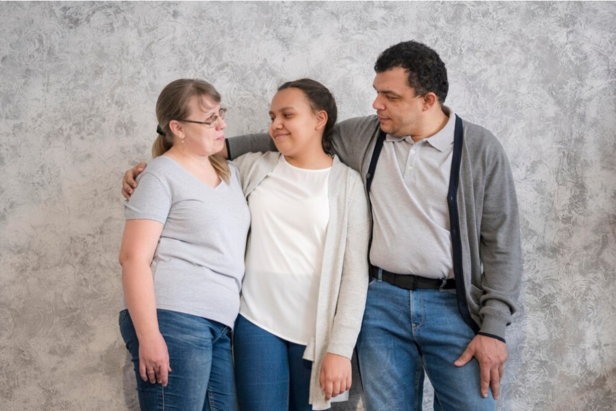Take Charge of Your Life Without Hurting Your Parents
Stuti | Jan 30, 2025, 19:19 IST

Youngsters' stepping into adulthood and moving houses can be an emotionally challenging experience for both the children and parents. Determined by cultural influences, this change can create tension between the care and control aspects of parent-children relationships. This requires redefining boundaries and evolving your relationships with your parents with understanding and acknowledgement over time to balance autonomy and mutual love.
You have just moved to a new city and are sitting in a small apartment with many unpacked boxes. Your mother calls and asks if you have had dinner yet. She wants to know what you eat and if it is healthy.
Even though you've moved far away from home, your parents still want to be involved in all your decisions. Whether it is the food you eat, the money you spend, your safety, or your daily tasks, they want every detail. You know they don't want to control you, and it's all out of care, but you naturally feel irritated sometimes.
Many young adults experience this when they move out. It's an emotionally complex transition that encompasses a clash between love, care, independence, and their parents’ conditioning.

Moving out is considered to be the first step into adulthood. It brings a sense of freedom, a space that is truly yours. But what must also be mentioned is the lingering influence of your parents' decisions on your lives.
This transition is difficult for both the parents and the children. Moving out as an independent young adult brings with it a shift in identity. At the same time, it is a deeply emotional experience, as they have to take a backseat from being a protector to watching your actions from a distance. They can still provide some guidance but it is drastically different from the primary role they played earlier. This transition can be extremely unsettling, especially in India where family ties are considered crucial.

Even though the need for autonomy in children increases with time, it presents its fair share of dilemmas. Children have to battle between deciding whether to consider their parents’ advice or how to set boundaries without hurting them.
As for the parents, they might feel helpless about not being able to help their children every step of the way.
Such dilemmas make the situation even harder. Parents don't intend to exert control, rather they are just conditioned to take things into their hands out of concern. However, children might perceive this continuous involvement as an ignorance of their growth.
Understanding Varying
Different cultures back different kinds of parent-child relationships. While parents in Western societies encourage independence from a fairly young age– expecting their children to move out in their teens or early twenties and make their own decisions; Asian cultures (including India) emphasise more on a family-first approach.
This means that Asian cultures highlight the importance of family interdependence. Here, children live with their parents until marriage, and families play a huge role in decision-making for the children.
Parenting in itself is a subjective term that doesn’t have any hard and fast rules. Some parents might be involved in their children's lives even when they have moved out to offer unsolicited advice and make decisions on their behalf. While there might be others who maintain a healthy balance between being available when needed and letting the children make their own mistakes. There is also another extreme where the parents are completely absent and offer no guidance, which makes the children feel abandoned.
Many parents might feel that letting go of their children means that they are no longer needed in their children's lives. Whereas the reality is that their relationship needs to evolve.

The hardest part of the transition is developing and maintaining boundaries. The independence that children seek may be perceived as rejection by the parents.
Parents might want to have a say in how their children spend and save their money; how they handle their careers, relationships; etc. No doubt that these behaviours stem out of genuine concern, sometimes these may be perceived as intrusive and unprecedented. This is the reason why many young adults start lying to their parents just to avoid unnecessary conflict. Setting boundaries without causing problems can be done in the following ways:

Any child is the centre of the universe for their parents. Every milestone of a child's life from their first words to the start or end of their schooling is a reminder for the parents how much they are needed. Due to this, when a child moves out– it seems more like a loss than just a change.
A lot of parents, especially mothers struggle with a deep sense of loss when the children move out. This is even more true for parents whose lives revolve around their kids. Understanding the parents’ perspective might help the children to be more empathetic towards their feelings rather than being frustrated.

When children move out, they can maintain a healthy and nurturing relationship with their parents by achieving balance.
Children should try to involve their parents in their daily activities as long as they don't feel that their decisions are being dictated. They should also try to take the initiative and call their parents first so that the parents’ initiatives don't seem like nagging.
As for the parents, they should trust their kids to make the right decisions. They should understand the difference between advising and meddling, and that growth comes from experience– not parental intervention.
It is natural for the transition to switch the dynamics, expectations, and emotions. But parents and children can navigate all complexities with understanding and patience. Even as children step into adulthood, they still remain kids for their parents. And maybe that's okay, they just need to redefine their relationship.
To every parent treating their “not-kids-anymore” as kids, all hearts to you. But let your kids stand up on their own, you'll be proud of them.
Even though you've moved far away from home, your parents still want to be involved in all your decisions. Whether it is the food you eat, the money you spend, your safety, or your daily tasks, they want every detail. You know they don't want to control you, and it's all out of care, but you naturally feel irritated sometimes.
Many young adults experience this when they move out. It's an emotionally complex transition that encompasses a clash between love, care, independence, and their parents’ conditioning.
A Psychological Perspective

The Struggle Between Independence and Love
Moving out is considered to be the first step into adulthood. It brings a sense of freedom, a space that is truly yours. But what must also be mentioned is the lingering influence of your parents' decisions on your lives.
This transition is difficult for both the parents and the children. Moving out as an independent young adult brings with it a shift in identity. At the same time, it is a deeply emotional experience, as they have to take a backseat from being a protector to watching your actions from a distance. They can still provide some guidance but it is drastically different from the primary role they played earlier. This transition can be extremely unsettling, especially in India where family ties are considered crucial.
Double Struggle Double Trouble

A Conflict Between Parents and Children
Even though the need for autonomy in children increases with time, it presents its fair share of dilemmas. Children have to battle between deciding whether to consider their parents’ advice or how to set boundaries without hurting them.
As for the parents, they might feel helpless about not being able to help their children every step of the way.
Such dilemmas make the situation even harder. Parents don't intend to exert control, rather they are just conditioned to take things into their hands out of concern. However, children might perceive this continuous involvement as an ignorance of their growth.
Understanding Varying Parenting Styles
This means that Asian cultures highlight the importance of family interdependence. Here, children live with their parents until marriage, and families play a huge role in decision-making for the children.
Parenting in itself is a subjective term that doesn’t have any hard and fast rules. Some parents might be involved in their children's lives even when they have moved out to offer unsolicited advice and make decisions on their behalf. While there might be others who maintain a healthy balance between being available when needed and letting the children make their own mistakes. There is also another extreme where the parents are completely absent and offer no guidance, which makes the children feel abandoned.
Many parents might feel that letting go of their children means that they are no longer needed in their children's lives. Whereas the reality is that their relationship needs to evolve.
Blurred Boundaries: Is it Caring or Caging?

Finding the Middle Ground with Your Parents
The hardest part of the transition is developing and maintaining boundaries. The independence that children seek may be perceived as rejection by the parents.
Parents might want to have a say in how their children spend and save their money; how they handle their careers, relationships; etc. No doubt that these behaviours stem out of genuine concern, sometimes these may be perceived as intrusive and unprecedented. This is the reason why many young adults start lying to their parents just to avoid unnecessary conflict. Setting boundaries without causing problems can be done in the following ways:
- Communicate your requirements clearly without any signs of frustration.
- Consistently put effort and expressing your love to your parents so that they don't start thinking that you are emotionally detached.
- Agreeing once might be considered as a precedent. Try to learn and say no with kindness.
Why Are Parents the Way They Are?

Parents Witnessing Their Baby Take Its First Steps
Any child is the centre of the universe for their parents. Every milestone of a child's life from their first words to the start or end of their schooling is a reminder for the parents how much they are needed. Due to this, when a child moves out– it seems more like a loss than just a change.
A lot of parents, especially mothers struggle with a deep sense of loss when the children move out. This is even more true for parents whose lives revolve around their kids. Understanding the parents’ perspective might help the children to be more empathetic towards their feelings rather than being frustrated.
Navigating the Change Together

Regularly Check-In with Your Parents
When children move out, they can maintain a healthy and nurturing relationship with their parents by achieving balance.
Children should try to involve their parents in their daily activities as long as they don't feel that their decisions are being dictated. They should also try to take the initiative and call their parents first so that the parents’ initiatives don't seem like nagging.
As for the parents, they should trust their kids to make the right decisions. They should understand the difference between advising and meddling, and that growth comes from experience– not parental intervention.
Love is to Evolve, It Doesn't Have to Stop
To every parent treating their “not-kids-anymore” as kids, all hearts to you. But let your kids stand up on their own, you'll be proud of them.
